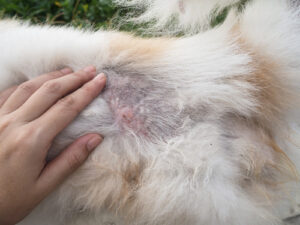Understanding the Curiosity of Cats
Cats are known for their curious nature, often exploring and investigating anything new or interesting in their environment. This curiosity extends to the food we eat, leading cat owners to wonder whether it’s safe to share certain human foods, like cinnamon, with their feline companions. Let’s delve into this question and uncover the facts about cats and cinnamon.
The Cinnamon Conundrum
Cinnamon is a popular spice known for its warm, aromatic flavor, and it’s commonly used in various recipes and beverages. However, when it comes to cats, things aren’t as straightforward. Cats have unique dietary needs and sensitivities that differ from humans and even dogs.
Can Cats Safely Consume Cinnamon?
While cinnamon itself isn’t toxic to cats, it’s not something you should actively introduce into their diet. Here’s why:
- Digestive Sensitivity: Cinnamon contains essential oils that can irritate a cat’s digestive system. Ingesting even small amounts of cinnamon can lead to stomach upset, diarrhea, or vomiting.
- Allergic Reactions: Just like people, cats can have allergies. Some cats may be more sensitive to cinnamon than others and could experience allergic reactions, which can range from mild to severe.
- Blood Sugar Regulation: Cinnamon is sometimes touted for its potential to help regulate blood sugar in humans. However, this is not a concern for cats, as they have very different metabolic needs.
Cinnamon-Related Risks for Cats
To ensure the safety and well-being of your feline friend, it’s essential to be aware of the potential risks associated with cats consuming cinnamon:
- Gastrointestinal Upset: As mentioned earlier, cinnamon can lead to digestive discomfort, including diarrhea and vomiting. These symptoms can be distressing for both you and your cat.
- Allergic Reactions: Allergic responses can manifest as itching, skin rashes, or even difficulty breathing. Severe allergic reactions can be life-threatening and require immediate veterinary attention.
- Cinnamon Powder Inhalation: Cats are naturally curious and may investigate the scent of cinnamon powder. Inhaling the fine particles can lead to respiratory irritation and discomfort.
Better Safe Than Sorry – Keep Cinnamon Away
Considering the potential risks, it’s best to err on the side of caution and keep cinnamon out of your cat’s reach. Avoid sprinkling it on their food or letting them come into contact with cinnamon-based products. Instead, focus on providing a well-balanced and nutritionally appropriate diet for your cat.
Alternative Treats for Your Feline Friend
If you’re looking for ways to treat your cat or provide them with a special snack, there are plenty of safe alternatives:
- Catnip – Many cats enjoy catnip, which can be sprinkled on scratching posts or toys for playtime.
- Commercial Cat Treats – There are numerous cat treats available on the market, specifically formulated to meet feline dietary requirements. Look for those approved by veterinarians.
- Fresh Cat Grass – Some cats enjoy nibbling on fresh cat grass, which can be grown at home or purchased at pet stores.
When to Seek Veterinary Care
If, by chance, your cat has ingested cinnamon or shows any signs of discomfort or allergic reactions, it’s crucial to act promptly:
- Contact Your Veterinarian: Call Arvada Veterinary Hospital at (303) 424-4439 for guidance on how to proceed. Describe the symptoms and circumstances to help the veterinarian assess the situation.
- Observe Your Cat: Keep a close eye on your cat’s behavior and condition. Note any changes or worsening symptoms.
While cinnamon itself isn’t toxic to cats, it’s best to avoid offering it to them due to the potential risks and sensitivities they may have. Instead, focus on providing a balanced and cat-friendly diet and seek out safe treats and enrichment options to keep your feline friend happy and healthy. If you have any concerns about your cat’s health or diet, don’t hesitate to call Arvada Veterinary Hospital at (303) 424-4439 for professional advice and care.





